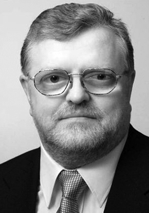The Privatisation Scheme of Narva Power Plants does not Conform to Estonia’s National Interests
The present government is unable to understand the real significance of privatising the Narva Power Plants and the expected consequences for the Estonian economy. Allowing all strategic infrastructure enterprises in Estonia to fall under foreign control would in essence mean giving up Estonian independence and sovereignty.
The present article explores the following problems in connection with the privatisation of 49% interest in the Narva Power Plants:
- determining the value of Narva Power Plants;
- profit margin of the monopolistic infrastructure enterprise;
- formation of the price of electric energy;
- choice of the source of investments;
- assessing the quality of privatisation bids.
Conclusions: According to the Riigikogu decision of 16 December 1998, the Riigikogu must assess the conditions of the privatisation deal and approve it9.
The Government advisers have used inappropriate methods for assessing the value of the assets of the Narva Power Plants (incl. power plants, oil shale oil extraction plant, oil shale energy related know-how that is unique in the world, participation in the Estonian Oil Shale PLC).
The profit margin of the monopolistic infrastructure enterprise is an important component in the price of the service that the enterprise offers. The profit margin asked by NRG Energy is unreasonably high.
The Government disregarded the factor that one of the main aims of an infrastructure enterprise should be to maintain the stability of the price of a product or service.
Proceeding from trivial neo-liberal theory, the state is always a bad manager. According to this simplified ideology, the foreign investor comes to help us. However, the practical experience of the world economy does not prove these ideological views.
Janno Reiljan, born 1951, Education: Tartu State University, economist, speciality of mathematics and economic cybernetics 1975; Candidate’s degree in economics 1980, Doctor of Economics 1991. Work: practising researcher at Tartu State University 1975-1977; Moscow Lomonossov State University, post-graduate studies 1977-1980, lecturer of the department of economics of Tartu State University 1981-, including doctoral student 1989-1991, docent 1990-1991, dean 1993-96 professor 1991-1999; member of the IX Riigikogu 1999-. Affiliation: People’s Union, Estonian Economic Society, Fraternity Fraternitas Livensis.
